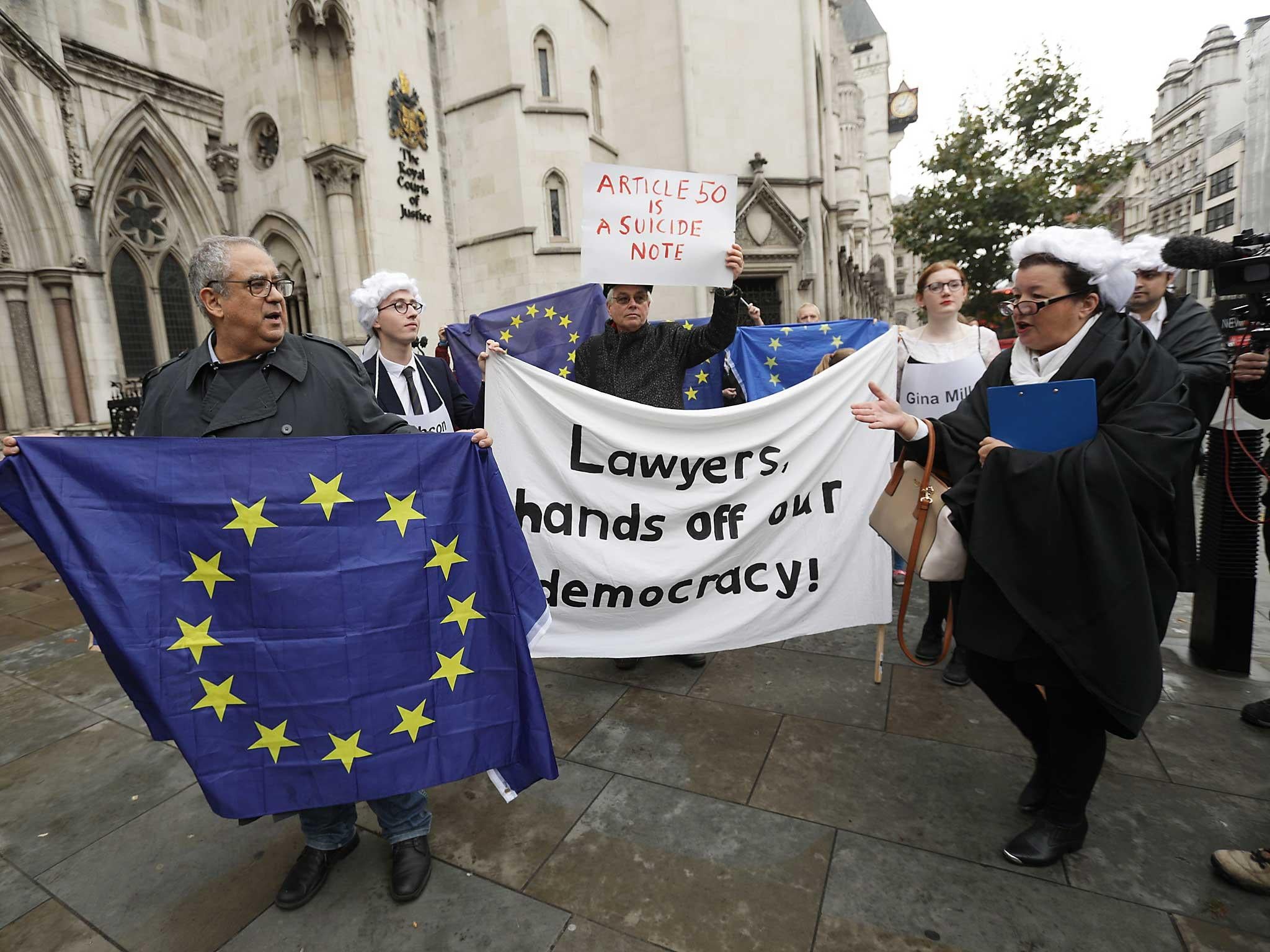It doesn’t matter that we’ve found out the EU referendum wasn’t legally binding – it would be a tactical error to abandon Brexit
To suggest that the result of the referendum might be ignored is worse than a democratic outrage. It makes the Remainers, now rebranded as soft-Brexiteers, seem arrogant, out of touch and undemocratic


Your support helps us to tell the story
From reproductive rights to climate change to Big Tech, The Independent is on the ground when the story is developing. Whether it's investigating the financials of Elon Musk's pro-Trump PAC or producing our latest documentary, 'The A Word', which shines a light on the American women fighting for reproductive rights, we know how important it is to parse out the facts from the messaging.
At such a critical moment in US history, we need reporters on the ground. Your donation allows us to keep sending journalists to speak to both sides of the story.
The Independent is trusted by Americans across the entire political spectrum. And unlike many other quality news outlets, we choose not to lock Americans out of our reporting and analysis with paywalls. We believe quality journalism should be available to everyone, paid for by those who can afford it.
Your support makes all the difference.There’s a hoo-ha in the soft-Brexit dovecote over the EU referendum being merely “advisory”. As we report today, Nicky Morgan, Dominic Grieve and Kenneth Clarke have seized on a six-year-old Government statement to say – in Morgan’s words – “Parliament has to be responsible for deciding whether or not to take action in response to that result.”
It is of course true that referendums in Britain are advisory, or “consultative”, as Harold Wilson called it when he held the first national one in 1975. In our uncodified constitution, it is not possible to limit the sovereignty of Parliament.
The position is clouded by some people describing the 2011 referendum on the Alternative Vote as legally binding. What they mean is that the Act to bring in AV was already law, and provided that, if the people voted Yes, “the Minister must make an order bringing into force ... the alternative vote provisions” set out in the Act. However, Parliament could have changed its mind and repealed that clause.
The same applies to the EU referendum. It is binding on the Government, in the sense that the Government promised, in its leaflet to all households: “This is your decision; the Government will implement what you decide.” But as a matter of constitutional principle it cannot be binding on Parliament.
However, the formal legal position is irrelevant and it is unwise of Morgan, Grieve and Clarke to have been drawn into commenting on it. The idea that Parliament would say to the British people, “Your opinion is very interesting but we have decided to ignore it,” has only to be imagined to be dismissed.
To suggest such a thing – and that is precisely what Morgan has suggested (“whether or not to take action”) – is worse than a democratic outrage, it is a tactical error. It makes the Remainers, now rebranded as soft-Brexiteers, seem arrogant, out of touch and undemocratic.
The soft-Brexiteers have been making headway in pressing the argument for Parliament to scrutinise the Government’s plans for implementing the decision of the people in the referendum. The first skirmish is over the Government’s right to trigger Article 50 of the EU Treaty, which starts the two-year process by which a member state leaves the EU. The Government says that treaties are its responsibility, so it does not need parliamentary approval for it.
Whether or not the Government wins the case at the High Court – which will now go to the Supreme Court – against those insisting that Article 50 needs an Act of Parliament, the case for Parliament to be involved in the Brexit negotiations as much as possible has been made.
The one thing that could undermine that consensus would be if Morgan, Grieve and Clarke gave the impression that, far from wanting to scrutinise the terms of Brexit, their aim is to scupper it.
Join our commenting forum
Join thought-provoking conversations, follow other Independent readers and see their replies
Comments